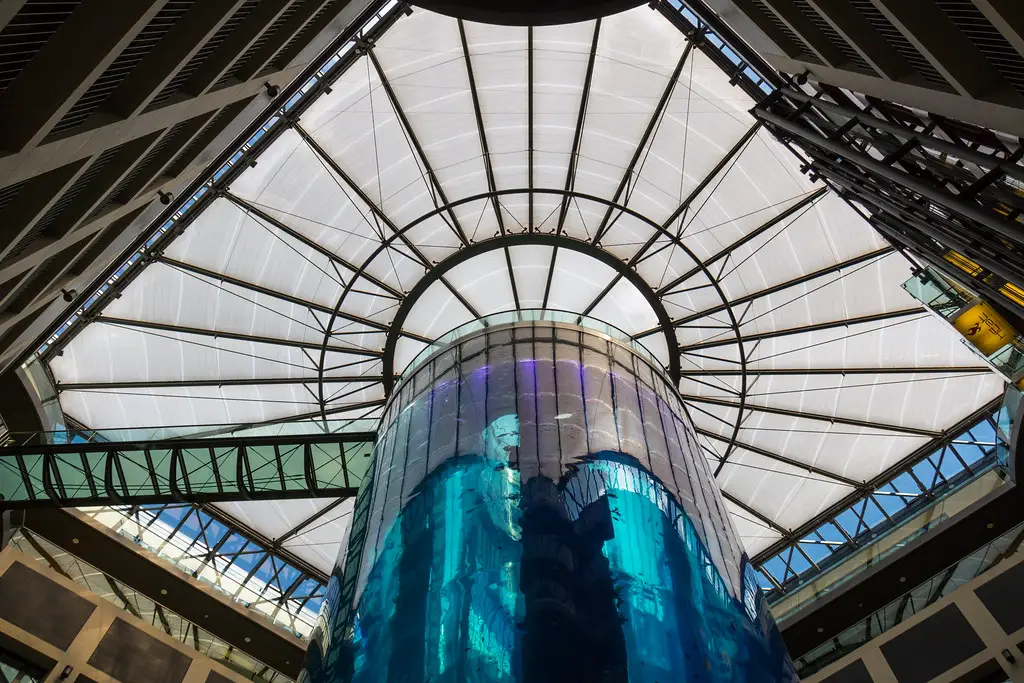
The “AquaDom” was a giant aquarium containing 1,500 fish of over 100 different species in a 15.85m (52 ft) high tank, opened in December 2003 in the lobby of the Radisson Blu Hotel, Berlin. The AquaDom was named the world’s largest cylindrical aquarium by Guinness World Records and reportedly cost around £12.8m (£11.2m) to build.
In the early morning hours of 16 December 2022, it exploded, flooding the entire hotel and nearby streets and seriously injuring two people in the process. According to local police, signs of incredible damage have been recorded. Online videos show the remains of the aquarium, a pile of debris outside the front door, which now hangs in the street bent by the force of the exploding tank, and water from the tank flowing into the hotel lobby.
After the incident, hotel guests were evacuated from the hotel by authorities and armed police at 05:50 (04:50 GMT). Most of the fish died, with cold weather making rescue efforts difficult, according to Berlin’s fire rescue team. Firefighter James Klein told local media that dozens of fish have been fortunately found alive in the water-pooled area and will be housed in another aquarium. Meanwhile, officials are working to save another 400-500 oxygen-deprived fish in small tanks below the hotel lobby, according to The Associated Press.
Paul Maletzki, a guest on the fourth floor of the hotel, told the media that he was awakened by a loud explosion and the ground shaking. Peeked down into the lobby and saw water running across it. Sandra Weeser, a member of the German Federal Parliament, told the same story as Paul Maletzki. She described the incident as catastrophic, recalling the sight of a large frozen parrotfish on the ground.
Berlin Mayor Franziska Giffey visited the hotel to assess the damage and called the explosion a tsunami. Expressing further consolation, she said that the incident happened so early in the morning that if the incident happened an hour later in a lobby and a street full of visitors, mostly children, the mayhem would have gone out of control.
Berlin’s fire brigade claims a team of 100+ firefighters has been dispatched to the scene of the explosion, which is still under investigation. They also used rescue dogs to search the hotel for any possible casualties but found none.
There was no evidence that the explosion was the result of a targeted attack, but it is believed that freezing temperatures – which had dropped to 6 degrees Celsius overnight – in the tank, according to local police. They urged the public to drive carefully as the nearby roads were submerged in water.
Berlin’s public transport authority announced the closure of Karl Leibknecht Street outside the hotel in support of police precautionary measures, including the suspension of tram service in the area due to high water on the road.





